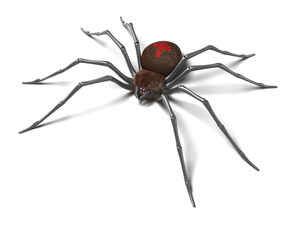MINNEAPOLIS, April 14, 2021 /PRNewswire/ -- Spring has sprung, and so have those beautiful white and multi-colored lilies. While these annual favorites between Easter and Mother's Day brighten up gardens, rooms and faces, they contain toxins that can be deadly to pets, especially cats. In 2020, the highest spike of calls to the Pet Poison Helpline regarding lily exposure was on Mother's Day, with Easter and Memorial Day being tied for second.
One lily-loving cat named Emmy is the focus of this month's Toxin Tails case from the toxicology experts at Pet Poison Helpline.
"My wife loves lilies, so I bought her a bouquet for Valentine's Day," said Robert Milliner, who has a Domestic Shorthair cat named Emmy. "Sometime in the middle of the night Emmy must have nibbled on the lilies and coated her face in pollen. She looked like Simba from that birth scene in the Lion King, with that orange color on her face. After a little online investigation, I realized that was not good. I called the Pet Poison Helpline and took Emmy to our veterinarian."
"There are many plants called lilies, and unfortunately the type of lily Emmy encountered—a 'true lily' of the Lilium genus—can cause acute renal (kidney) failure in cats," explained Dr. Ahna Brutlag, a board-certified veterinary toxicologist at Pet Poison Helpline. "Since it had been 9-10 hours since ingestion, inducing vomiting would not be beneficial. Instead, our first recommendations were to administer a dose of activated charcoal to bind to the plant's toxins and bathe to remove the pollen from her fur and face. We then advised hospitalization on intravenous fluids for 48 hours along with ongoing monitoring of her kidney values, other blood work and urine output. Fortunately, two days later, Emmy went home clean-faced and healthy."
"Cats need quick access to veterinary care with this type of lily exposure," Dr. Brutlag added. "If they receive proper care within 18 hours of ingestion, their chances of survival are extremely high. If they do not receive proper care, or care is delayed, the chances of survival drop significantly, with some studies reporting a 100 percent fatality rate."
Many kinds of plants are found or sold with "lily" as part of their name. A few grow wild in ditches and wooded areas, some are sold as bulbs in garden shops and many are used in floral arrangements. If you live with cats, it is critical to know which lilies are toxic to your feline friend. The most dangerous and potentially fatal lilies for cats are "true lilies" or those in the genus Lilium. Common examples include Oriental hybrid lilies such Star Gazer and Casa Blanca lilies—these beautiful, fragrant and affordable flowers are often found in cut-flower bouquets. Other examples include potted Easter lilies or garden plants such as tiger lilies. Additionally, daylilies (Hemerocallis), although not a true lily, may also cause kidney failure in cats.
Exposure to any part of the plant, including leaves, flowers, pollen, or even the water from the vase may result in acute kidney failure in cats. These ingestions are medical emergencies requiring immediate veterinary care. Early decontamination, aggressive intravenous fluid therapy, renal function tests, and supportive care greatly improve the cat's prognosis. Dogs may experience minor gastrointestinal upset after ingestion of these lilies but do not appear to develop kidney damage.
Pet Poison Helpline created Toxin Tails to educate the veterinary community and pet lovers on the many types of poisoning dangers facing pets, both in and out of the home. All the pets highlighted in Toxin Tails have been successfully treated for the poisoning and fully recovered.
About Pet Poison Helpline
Pet Poison Helpline, an animal poison control center based in Minneapolis, is available 24 hours, seven days a week for pet owners and veterinary professionals who require assistance treating a potentially poisoned pet. The veterinarians and board-certified toxicologists provide treatment advice for poisoning cases of all species, including dogs, cats, birds, small mammals, large animals and exotic species. As the most cost-effective option for animal poison control care, Pet Poison Helpline's fee of $65 per incident includes follow-up consultations for the duration of the poison case. Pet Poison Helpline is available in North America by calling 800-213-6680. Additional information can be found online at www.petpoisonhelpline.com.
Contact: Maja Ferrell
Pet Poison Helpline
(952) 852-4608
[email protected]
SOURCE Pet Poison Helpline

Related Links
https://www.petpoisonhelpline.com/
WANT YOUR COMPANY'S NEWS FEATURED ON PRNEWSWIRE.COM?
Newsrooms &
Influencers
Digital Media
Outlets
Journalists
Opted In






Share this article